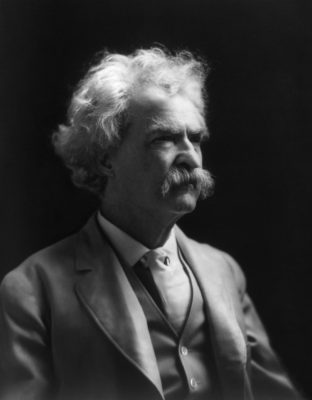
If you’ve ever been blown away by the work of Gillian Flynn, Ian McEwan or Kazuo Ishiguro, then you’re familiar with the unreliable narrator. This is an elusive technique many writers emulate, but it’s not as easy as they make it seem.
A narrator’s unreliability can stem from insanity, addiction, perversion, greed, or plain ignorance, and more often than not a combination of each. Take Mark Twain’s The Adventures of Huckleberry Finn. This book continues to be highly controversial (for its heavy use of racial slurs) yet focus on the character of Huck Finn and you’ll discover one of the most famous unreliable narrators in American Literature.
To effectively write an unreliable narrator there are three levels of consciousness to consider, each in conflict throughout the story.
- What the author knows
- What the narrator knows
- What the society believes
As the author you know everything about the story, but remember you want to deliver it in small doses to build tension. And your narrator shouldn’t know any of it (at least in the beginning). Huck Finn, an unreliable narrator, is a rambunctious, uneducated boy with an alcoholic father. He grew up dirt poor in the fictional town of St. Petersburg, Missouri before the Civil War. Unlike Mark Twain, who wrote books and traveled the world, Huck’s perspective of the world is limited by his experience. His ignorance is what makes him unreliable.
This is where society comes into play. At first Huck sees Jim the runaway slave as everyone else sees him, less than human. He helps Jim to escape, but feels a crippling guilt over it, believing he’ll go to Hell for what he did. Huck is experiencing the mental discomfort associated with cognitive dissonance, and Twain points that out for the reader.
“I can tell you it made me all over trembly and feverish, too, to hear him, because I begun to get it through my head that he was most free – and who was to blame for it? Why, me. I couldn’t get that out of my conscience, no how nor no way.”
As Huck drifts down the Mississippi with Jim his perspective shifts. This is important for an unreliable narrator because he or she needs to change by the end of the story (otherwise the story is flat). Huck befriends Jim on the trip and sees that slavery is immoral. Then he defies societal norms in a way that is extremely brave for a 13-year-old boy.
By the end of the novel Huck defends helping Jim escape, even in the face of (what he believes will be) eternal damnation.
“All right, then, I’ll go to hell. I would go to work and steal Jim out of slavery again; and if I could think up anything worse, I would do that, too; because as long as I was in, and in for good, I might as well go the whole hog.”
Crafting the unreliable narrator is a delicate balance between the author’s intentions, the narrator’s awareness and how the setting works for or against a character. The author needs to carefully wade through what each knows and believes like puzzle pieces. Let something slip too early and it’ll derail the entire narrative.
